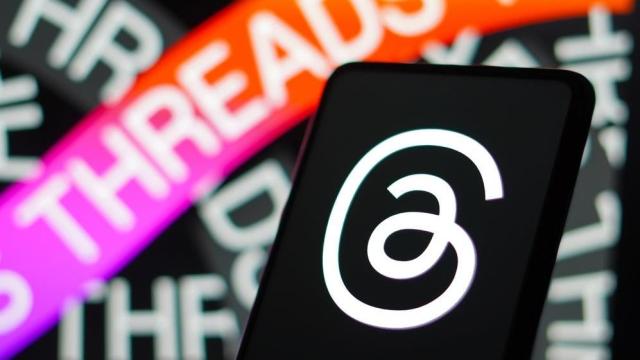When the Arab Spring unfolded just over ten years ago, Twitter played a pivotal role. The site was both a source for up-to-the-minute information and an organizing tool for protestors, and some celebrated Twitter as part of a new, digital revolution. But this week, a less hopeful moment in the Middle East proved once and for all that old Twitter is dead. X users flood the app with lies, misinformation, and even video game footage masquerading as “citizen journalism” from the streets of Gaza. A number of pundits argued there’s an opportunity for Mark Zuckerberg’s Threads to cement itself as the go-to news platform. Here’s the real news: that’s an opportunity Threads doesn’t want.
The detritus at X quickly bubbled over to the rest of the internet — some of it promoted by Elon Musk himself — to the point that the European Union threatened to ban the app over the Israel-Hamas misinformation problem. As the lies rolled in, spurned X users looked elsewhere. Many turned to Threads, which saw an influx of users clamoring for news. It was enough for Casey Newton of Platformer to declare that Threads’ “purpose may be coming into focus — if Meta will embrace it.” But so far, it won’t.
“We’re not anti-news,” Instagram CEO Adam Mosseri posted on Threads Wednesday. “But, we’re also not going to amplify news on the platform. To do so would be too risky given the maturity of the platform, the downsides of over-promising, and the stakes.” Meta did not respond to a request for comment.
Threads is a Twitter clone, like Bluesky, Mastodon, and a number of other apps. But unlike its competitors, news is one aspect of Twitter that Threads isn’t copying. Meta, owner of Threads, Instagram, and Facebook, has been on a campaign to de-emphasize news across its platforms. The most extreme example is in Canada, where the company blocked links to news sites altogether in response to a new law that would compel the company to share some fraction of its billions of dollars with publishers. And despite Mosseri’s assurances, Threads has demonstrated its anti-news intentions from the start. Last month, the Washington Post reported that Threads had blocked users from searching for a variety of terms related to the news, including “COVID.”
Meta doesn’t want Threads to replace X/Twitter as the home for debate over current events. In fact, the company actively wants to avoid it. “I think that sort of creates a certain emotional feeling and load. I always just thought you could create a discussion experience that wasn’t quite so negative or toxic,” Zuckerberg told the Verge in late September. “I think it’s hard to come away from reading news about politics these days feeling good, right?”
It’s an ironic stance given that Facebook spent years intentionally sewing discontent among its users to drive up engagement. But Zuckerberg wasn’t being disingenuous; he decided Meta’s reputation as an outrage machine is bad for business. The company made a number of desperate changes across its family of apps over the last year or so to try and make users have a more pleasant experience online, tamping down news among them.
Threads is on the extreme end of that effort. The app isn’t just avoiding controversy, it almost seems like Meta wants Threads to be boring. That may not turn Threads into Twitter’s replacement, but it may help Threads be Twitter’s executioner.
Zuckerberg tried to buy Twitter at least two different times in its early days, but the company rejected the bids. Since then, Twitter never approached Facebook or Instagram’s numbers, but in terms of cultural relevance, it’s always been one of Zuck’s only real social media competitors
Like Facebook, outrage, debate, and news were always part of Twitter’s success. Now it seems Elon Musk has taken that so far it’s pushing users away, but that shift also happens at a moment of broader, more significant change in the social media landscape. Today, social media is dead, or at least it’s not social. The days when you’d log in primarily for content from your friends, family, and coworkers are long gone. Today, the prevailing model comes from TikTok, a platform that looks more like TV, with content made by people you’re only connected to as a fan or a consumer.
People still want what Twitter used to offer, but there’s no reliable place to get it. Bluesky and Mastodon, the hippest Twitter replacements, are just fine for news, but they’re comparatively tiny platforms, and the fun comes from the network effects of a large user base.
Threads could usher in the news, but why bother? Some users want the sanitized, news-less Twitter experience you find on Threads. If Zuckerberg can offer one of many ports for fleeing Twitter refugees, he’ll aid in X’s self-destruction. It’s the classic Silicon Valley model: you don’t need to be better than your competition, you just need to crush it.
